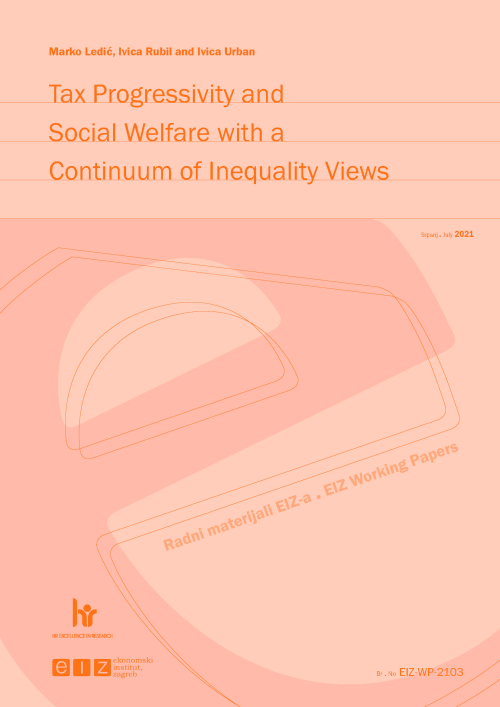New edition of EIZ Working Papers

The latest edition of EIZ Working Papers brings the paper Tax Progressivity and Social Welfare with a Continuum of Inequality Views by Marko Ledić, Ivica Rubil and Ivica Urban.
If public policies should aim at promoting social welfare, then tax progressivity/regressivity should be considered in terms of its impact on social welfare, rather than as an end in itself. Whether a tax is progressive or regressive and how much it affects social welfare depends on how a neutral tax, a tax neither progressive nor regressive, is defined. This, in turn, depends on the inequality view taken, that is, on what kind of transformation of an income distribution is considered not to change the level of inequality. Kakwani and Son (Journal of Economic Inequality, 2021) developed a social welfare-based framework, which enables one to decompose the total welfare loss associated with a tax into elements of which one is the welfare impact of tax progressivity/regressivity. While Kakwani and Son consider only the inequality views known as relative and absolute inequality, the authors of this paper provide a generalisation of the framework to accommodate all intermediate inequality views in the continuum between the two polar views. While the total welfare loss does not depend on inequality view, its composition does: for a progressive (regressive) tax, moving closer to the relative view reduces (increases) the importance of progressivity (regressivity) for the total welfare impact. Thus, the perception of the composition of a given tax-induced welfare loss varies with the inequality view taken. The authors apply the generalised framework to assess the impact on social welfare of the Croatian tax system, showing that it matters for such an assessment which inequality view is taken.
The publication can be accessed at the Institute's website here.


